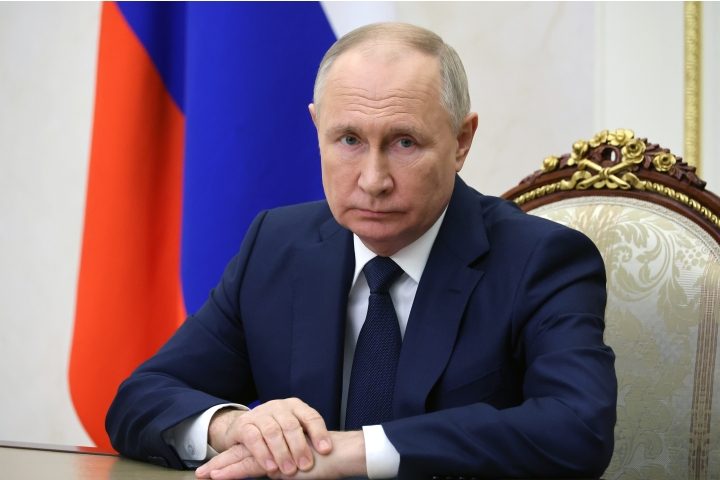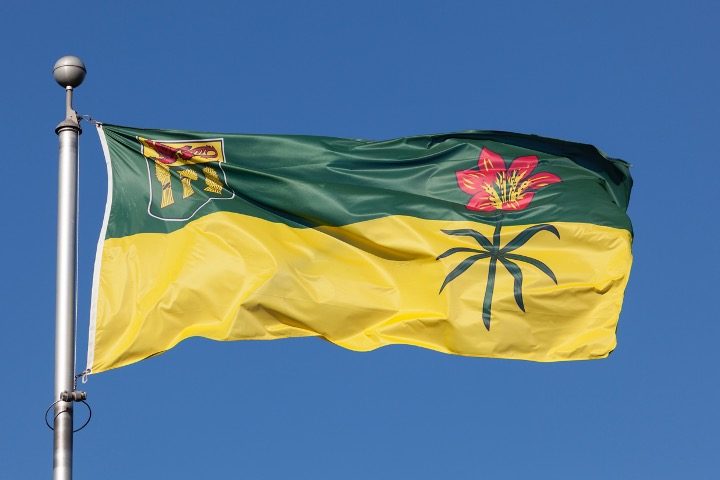
On November 28, Russian President Vladimir Putin said that families with many children should become a dominant trend in modern Russia, asserting that achieving this goal should be the Russian government’s utmost priority.
Addressing his audience at the World Russian People’s Council, a forum organized under the jurisdiction of the Russian Orthodox Church, Putin highlighted the importance of family values.
“Large families must become the norm, a way of life for all of Russia’s peoples,” he said, describing the family not only as the pillar on which the state and society stand, but also as “a source of morality.”
Putin proceeded to state that many ethnic groups in Russia have maintained the tradition of having “multigenerational families” with at least four or five children. “Russian families, many of our grandmothers and great-grandmothers had seven, eight, or even more children,” he pointed out, calling on everyone to “preserve and revive these excellent traditions.”
For many years, Russian officials have been trying to remedy what they describe as a “daunting” situation — a plummeting birth rate — by providing parents with an incentive of several thousand dollars. Inaugurated in 2007, this federal subsidy program permits Russian families to receive a payment for each child born.
However, Putin emphasized that while money and other benefits are extremely important to boost demographics, a person’s mindset was more crucial to promoting families in his country.
According to Putin, all levels of the Russian government should focus on supporting families. “Preserving and increasing the population of Russia is our goal for the coming decades and even generations ahead,” he added.
As part of a campaign to promote family values, Putin declared 2024 the “Year of the Family” last week. He has also admitted that abortion remains an “acute problem,” suggesting Moscow forbid the sale of pregnancy-terminating drugs and raise the overall standard of living in the country to address the issue.
The number of abortions in Russia has been on a steady decline in recent years, decreasing from more than 660,000 in 2018 to 517,000 in 2021, based on data from the Federal State Statistics Service. Besides, in recent months, private medical facilities in several Russian regions have begun declining to perform abortions in many cases.
At a meeting with young Russian scientists on Wednesday, November 29, Putin also stated that Germany lacks sovereignty and was being run by other Western countries, and that its policymakers have poor leadership skills.
Putin remarked on the EU’s move to reduce its reliance on Russian energy after the escalation of the Ukraine conflict, arguing that by enforcing the measure, Germany was only jeopardizing its interests.
The president noted that either European countries were rejecting cheap energy on their own accord, or such decisions were “done by their allies from the United States due to political reasons.”
Hence, according to Putin, the EU’s energy security took a beating when Poland and Ukraine cut off Russian gas supplies through their territory and the Nord Stream pipelines were blown up, he elaborated.
Putin, who had maintained close working relations with Berlin for most part of his political career, stated that Kyiv “receives money from Europe, from Germany … while the gas they need from Russia has been cut off.”
“The Germans swallow all this because … they lack sovereignty. And some government leaders apparently lack sufficient professional skills to make adequate and professional decisions. Everyone knows who that is, they are being laughed at by the whole world.”
Shortly after the Ukraine conflict intensified in February 2022, the EU tabled a plan to reduce its dependence on Russian energy “well before 2030.”
In April 2022, Russian energy giant Gazprom declared that it would stop delivering gas via the Yamal-Europe pipeline, which runs through Poland, because the country had refused to pay for the energy using rubles owing to sanctions against Moscow.
At the same time, Western restrictions enforced as a response to the Ukraine conflict — including those on fossil fuel imports — were among the primary factors which led to last year’s energy crisis.
The September 2022 bombing of the Nord Stream 1 and 2 gas pipelines linking Russia and Germany under the Baltic Sea worsened the situation further. Although several Western media outlets have suggested that the energy pipelines were blown up by Ukrainian-linked saboteurs, Pulitzer Prize-winning investigative journalist Seymour Hersh alleges that the attack was staged by U.S. intelligence agencies.
Putin has concurred with Hersh’s conclusions, maintaining that a sabotage of this magnitude would have been impossible without state support.
On December 2, Kremlin Press Secretary Dmitry Peskov remarked that the America-centric world was coming to an end, giving way to a new period of diversity in economics and other areas of international relations. Peskov’s comments were made in response to an article in the Financial Times, in which U.S. Assistant Secretary of State for Energy Resources Geoffrey Pyatt revealed that Washington was planning to cut Russia’s oil and gas revenues in half by 2030.
Pyatt, who served as the U.S. ambassador in Kyiv during the 2014 coup, also said that American sanctions against Moscow would stay in place “for years to come” — as long as Russia continues its military operation in Ukraine.
The Kremlin spokesman contended that the restrictions by the U.S. and its Western allies were not important for Russia, as Moscow has many other international trading partners. He told journalists that the United States might be world’s largest economy, but it’s not the only economy in the world. China is on the heels of the United States. “There are also growing economies with their own needs for energy resources,” he said.
“The world is much more diverse than the US. And therefore, the American-centric world is coming to an end and a period of diversity begins, including in international economic relations,” Peskov pointed out.
Peskov added that Russian authorities had no qualms about American sanctions remaining “for years to come,” even before Pyatt’s statement. Moscow was already considering such a reality while planning its policies, he said, adding that there is “also no doubt that the US will continue to try pressuring Russia.”
Shop For Night Vision | See more…
Shop For Survival Gear | See more…
-
Sale!

Quick Slow Release Paramedic Survival Emergency Tourniquet Buckle
Original price was: $14.99.$7.99Current price is: $7.99. Add to cart -
Sale!

Mesh Shooting Hunting Vest with Multi Pockets
Original price was: $59.99.$39.99Current price is: $39.99. Add to cart -
Sale!

Portable Mini Water Filter Straw Survival Water Purifier
Original price was: $29.99.$14.99Current price is: $14.99. Add to cart


















































